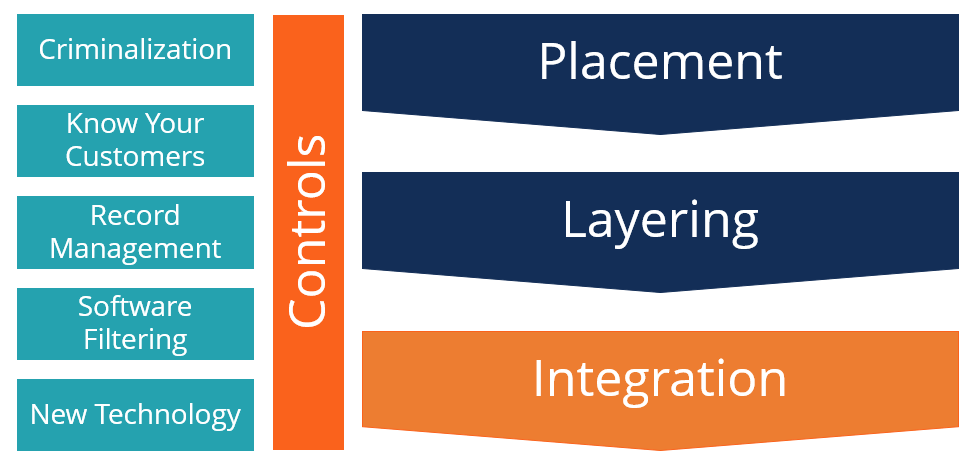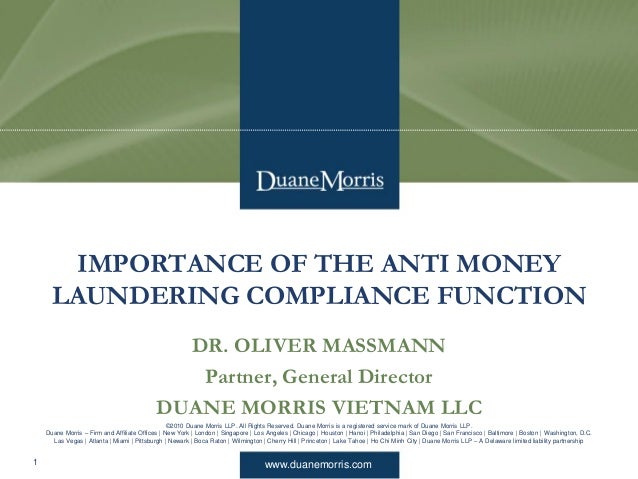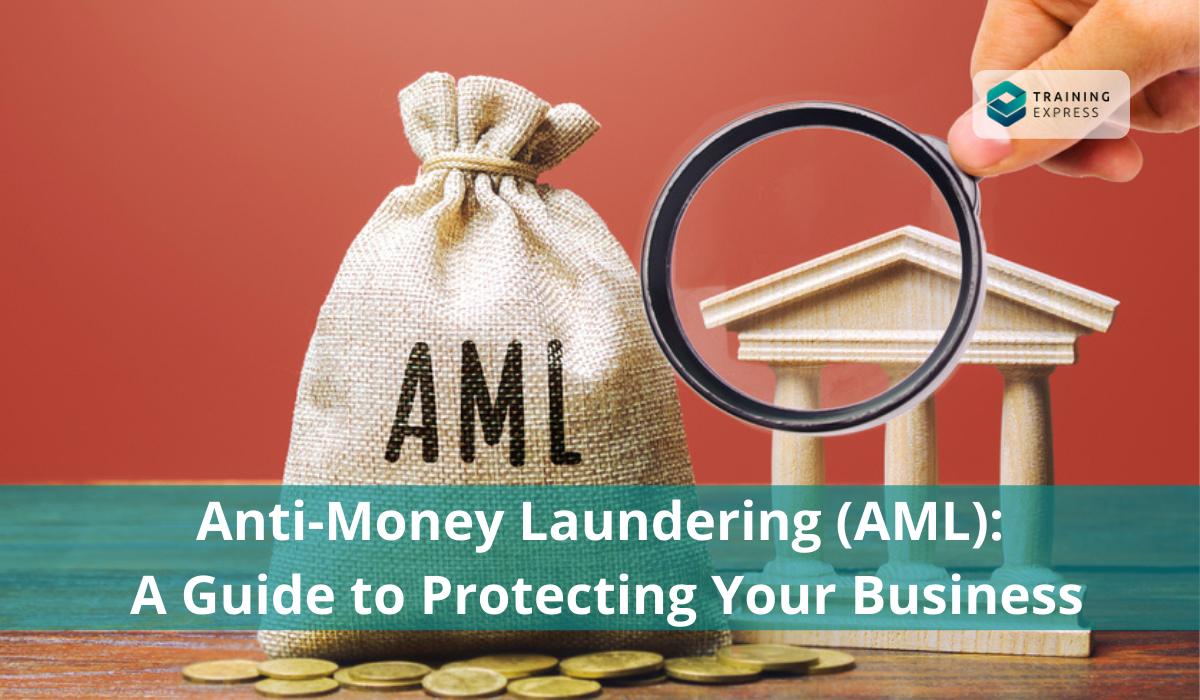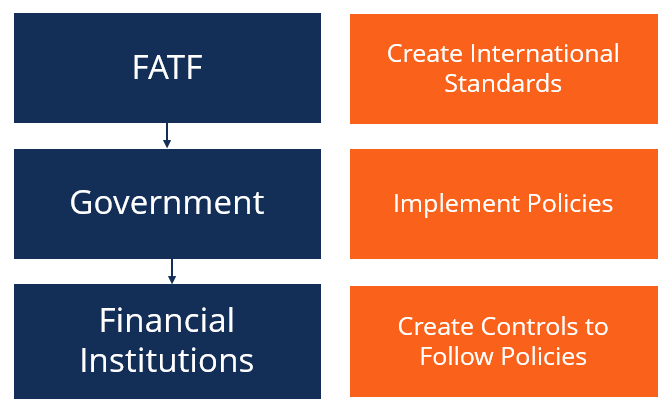Your Anti money laundering guidance for the accountancy sector images are available in this site. Anti money laundering guidance for the accountancy sector are a topic that is being searched for and liked by netizens today. You can Download the Anti money laundering guidance for the accountancy sector files here. Download all free photos and vectors.
If you’re looking for anti money laundering guidance for the accountancy sector images information connected with to the anti money laundering guidance for the accountancy sector interest, you have visit the right site. Our site always provides you with suggestions for seeking the maximum quality video and picture content, please kindly hunt and find more informative video content and images that fit your interests.
Anti Money Laundering Guidance For The Accountancy Sector. This guidance has been written both as a result of the changes made to the Money Laundering Terrorist Financing and Transfer of Funds Information on the Payer Regulations 2017 by the Money Laundering and Terrorist Financing Amendment Regulations 2019 that came into force on 10 January 2020 and an extensive review of the previous guidance by the Legal Sector Affinity Group. September 2020 saw the issue of the draft AMLGAS update pending final HM Treasury Approval. As such they have a significant role to play in ensuring their services. The FATF has prepared a Guidance paper to provide support to countries and their financial institutions in designing Anti-Money Laundering and Terrorist Financing AMLCFT measures that meet the national goal of financial inclusion without compromising the measures that exist for the purpose of combating crime.
Https Www Anti Moneylaundering Org Document Default Aspx Documentuid F0eb992e 3a77 4395 A57b 1e64e85bb4e4 From
AMLCCs anti-money laundering solution for accountancy service providers was created in partnership with AML Supervisors accountants bookkeepers and tax advisers to solve the challenges that the accounting industry faces in complying with the latest anti-money laundering rules and regulations. This guidance is aimed at practitioners in the accountancy profession. Issued by the Consultative Committee of Accountancy Bodies in December 2007. The Anti-Money Laundering Guidance for the Accountancy Sector AMLGAS was therefore due for an update following the amendments to the AML regulations. As such they have a significant role to play in ensuring their services. New guidance for all entities providing audit accountancy tax advisory insolvency or related services such as trust and company services by way of business.
The FATF has prepared a Guidance paper to provide support to countries and their financial institutions in designing Anti-Money Laundering and Terrorist Financing AMLCFT measures that meet the national goal of financial inclusion without compromising the measures that exist for the purpose of combating crime.
The guidance helps accountancy related businesses meet their obligations for money laundering supervision including customer due diligence. ANTI-MONEY LAUNDERING GUIDANCE FOR THE ACCOUNTANCY SECTOR Introduction Accountants are key gatekeepers for the financial system facilitating vital transactions that underpin the UK economy. Countries and their competent authorities practitioners in the banking sector and other financial and designated non-financial sectors that rely on the customer due diligence performed by accountantsThe guidance aims to support accounting professionals in the design of effective measures to manage their MLTF risks when. This Anti-Money Laundering Guidance has been developed by a CCAB-I working party comprising staff and volunteer practitioners and has been approved for issue by The Institute of Certified Public Accountants in Ireland as Miscellaneous Technical Statement M42 Revised g Guidance Republic of Ireland Anti Money Launderin-to. Issued by the Consultative Committee of Accountancy Bodies in August 2008. The Anti-Money Laundering Guidance for the Accountancy Sector.
 Source: corporatefinanceinstitute.com
Source: corporatefinanceinstitute.com
The Anti-Money Laundering Guidance for the Accountancy Sector. This guidance is aimed at practitioners in the accountancy profession. 115 This guidance applies to businesses and individuals who fall within the provisions of the UK anti-money laundering regime because they are part of the regulated sector The. September 2020 saw the issue of the draft AMLGAS update pending final HM Treasury Approval. ANTI-MONEY LAUNDERING GUIDANCE FOR THE ACCOUNTANCY SECTOR Guidance for those providing audit accountancy tax advisory insolvency or related services in the United Kingdom on the prevention of money laundering and the countering of terrorist financing.
 Source: unitar.org
Source: unitar.org
Countries and their competent authorities practitioners in the banking sector and other financial and designated non-financial sectors that rely on the customer due diligence performed by accountantsThe guidance aims to support accounting professionals in the design of effective measures to manage their MLTF risks when. New guidance for all entities providing audit accountancy tax advisory insolvency or related services such as trust and company services by way of business. For the business itself. The Guidance has been issued to provide the accountancy sector. September 2020 saw the issue of the draft AMLGAS update pending final HM Treasury Approval.

This is draft guidance pending approval from HM Treasury published in September 2020. Driven by whats known as the 5th EU Money Laundering Directive 5MLD. AMLCCs anti-money laundering solution for accountancy service providers was created in partnership with AML Supervisors accountants bookkeepers and tax advisers to solve the challenges that the accounting industry faces in complying with the latest anti-money laundering rules and regulations. Countries and their competent authorities practitioners in the banking sector and other financial and designated non-financial sectors that rely on the customer due diligence performed by accountantsThe guidance aims to support accounting professionals in the design of effective measures to manage their MLTF risks when. As such they have a significant role to play in ensuring their services.
 Source: researchgate.net
Source: researchgate.net
Anti-Money Laundering Guidance for the Accountancy Sector. For the business itself. This guidance is aimed at practitioners in the accountancy profession. Issued by the Consultative Committee of Accountancy Bodies in December 2007. This guidance has been written both as a result of the changes made to the Money Laundering Terrorist Financing and Transfer of Funds Information on the Payer Regulations 2017 by the Money Laundering and Terrorist Financing Amendment Regulations 2019 that came into force on 10 January 2020 and an extensive review of the previous guidance by the Legal Sector Affinity Group.
 Source: slideshare.net
Source: slideshare.net
For the business itself. Accountants - Complying with the Anti-Money Laundering and Countering Financing of Terrorism Act 2009 PDF 12MB Tax Transfers Explanatory Note September 2018 This explanatory note clarifies whether activities relating to tax transfers payments and refunds are captured activities for the purposes of the AMLCFT Act. ANTI-MONEY LAUNDERING GUIDANCE FOR THE ACCOUNTANCY SECTOR Introduction Accountants are key gatekeepers for the financial system facilitating vital transactions that underpin the UK economy. This is draft guidance pending approval from HM Treasury January 2020 ANTI-MONEY LAUNDERING GUIDANCE FOR THE ACCOUNTANCY SECTOR Introduction Accountants are key gatekeepers for the financial system facilitating vital transactions that underpin the UK economy. Issued by the Consultative Committee of Accountancy Bodies in August 2008.
 Source: slideshare.net
Source: slideshare.net
This is draft guidance pending approval from HM Treasury published in September 2020. 115 This guidance applies to businesses and individuals who fall within the provisions of the UK anti-money laundering regime because they are part of the regulated sector The. Issued by the Consultative Committee of Accountancy Bodies in August 2008. ANTI-MONEY LAUNDERING GUIDANCE FOR THE ACCOUNTANCY SECTOR Guidance for those providing audit accountancy tax advisory insolvency or related services in the United Kingdom on the prevention of money laundering and the countering of terrorist financing. New guidance for all entities providing audit accountancy tax advisory insolvency or related services such as trust and company services by way of business.
 Source: sas.com
Source: sas.com
115 This guidance applies to businesses and individuals who fall within the provisions of the UK anti-money laundering regime because they are part of the regulated sector The. It can be unnecessarily costly to apply anti-money laundering provisions to services that do not fall within the AML regime. This guidance has been written both as a result of the changes made to the Money Laundering Terrorist Financing and Transfer of Funds Information on the Payer Regulations 2017 by the Money Laundering and Terrorist Financing Amendment Regulations 2019 that came into force on 10 January 2020 and an extensive review of the previous guidance by the Legal Sector Affinity Group. AMLCCs anti-money laundering solution for accountancy service providers was created in partnership with AML Supervisors accountants bookkeepers and tax advisers to solve the challenges that the accounting industry faces in complying with the latest anti-money laundering rules and regulations. Issued by the Consultative Committee of Accountancy Bodies in December 2007.
 Source: trainingexpress.org.uk
Source: trainingexpress.org.uk
ANTI-MONEY LAUNDERING GUIDANCE FOR THE ACCOUNTANCY SECTOR Introduction Accountants are key gatekeepers for the financial system facilitating vital transactions that underpin the UK economy. The FATF has prepared a Guidance paper to provide support to countries and their financial institutions in designing Anti-Money Laundering and Terrorist Financing AMLCFT measures that meet the national goal of financial inclusion without compromising the measures that exist for the purpose of combating crime. ANTI-MONEY LAUNDERING GUIDANCE FOR THE ACCOUNTANCY SECTOR Guidance for those providing audit accountancy tax advisory insolvency or related services in the United Kingdom on the prevention of money laundering and the countering of terrorist financing. Anti-Money Laundering and Countering the Financing of Terrorism Guidelines for the Financial Sector Central Bank of Ireland Page 7 13 Data Protection Firms shall comply with their obligations under Part 4 of the CJA 2010 having regard to. ANTI-MONEY LAUNDERING GUIDANCE FOR THE ACCOUNTANCY SECTOR Introduction Accountants are key gatekeepers for the financial system facilitating vital transactions that underpin the UK economy.
 Source: corporatefinanceinstitute.com
Source: corporatefinanceinstitute.com
Anti-money laundering guidance for the accountancy sector Guidance for those providing audit accountancy tax advisory insolvency or related services in the United Kingdom including such firms providing trust or company services on the prevention of money laundering and the countering of. Driven by whats known as the 5th EU Money Laundering Directive 5MLD. ANTI-MONEY LAUNDERING GUIDANCE FOR THE ACCOUNTANCY SECTOR Guidance for those providing audit accountancy tax advisory insolvency or related services in the United Kingdom on the prevention of money laundering and the countering of terrorist financing. This Anti-Money Laundering Guidance has been developed by a CCAB-I working party comprising staff and volunteer practitioners and has been approved for issue by the Chartered Accountants Ireland as Miscellaneous Technical Statement M42 Revised Anti Money Laundering Guidance - Republic of Ireland to replace the existing M42 which was. This guidance is based on the law and regulations as of 10 January 2020.
 Source: aatcomment.org.uk
Source: aatcomment.org.uk
115 This guidance applies to businesses and individuals who fall within the provisions of the UK anti-money laundering regime because they are part of the regulated sector The. Anti-Money Laundering Guidance for the Accountancy Sector. The guidance helps accountancy related businesses meet their obligations for money laundering supervision including customer due diligence. This guidance is based on the law and regulations as of 10 January 2020. The Anti-Money Laundering Guidance for the Accountancy Sector.
Source:
ANTI-MONEY LAUNDERING GUIDANCE FOR THE ACCOUNTANCY SECTOR Guidance for those providing audit accountancy tax advisory insolvency or related services in the United Kingdom on the prevention of money laundering and the countering of terrorist financing. AMLCCs anti-money laundering solution for accountancy service providers was created in partnership with AML Supervisors accountants bookkeepers and tax advisers to solve the challenges that the accounting industry faces in complying with the latest anti-money laundering rules and regulations. Issued by the Consultative Committee of Accountancy Bodies in August 2008. Driven by whats known as the 5th EU Money Laundering Directive 5MLD. Anti-Money Laundering and Countering the Financing of Terrorism Guidelines for the Financial Sector Central Bank of Ireland Page 7 13 Data Protection Firms shall comply with their obligations under Part 4 of the CJA 2010 having regard to.
 Source: corporatefinanceinstitute.com
Source: corporatefinanceinstitute.com
Issued by the Consultative Committee of Accountancy Bodies in December 2007. ANTI-MONEY LAUNDERING GUIDANCE FOR THE ACCOUNTANCY SECTOR Guidance for those providing audit accountancy tax advisory insolvency or related services in the United Kingdom on the prevention of money laundering and the countering of terrorist financing. This guidance has been written both as a result of the changes made to the Money Laundering Terrorist Financing and Transfer of Funds Information on the Payer Regulations 2017 by the Money Laundering and Terrorist Financing Amendment Regulations 2019 that came into force on 10 January 2020 and an extensive review of the previous guidance by the Legal Sector Affinity Group. As such they have a significant role to play in ensuring their services. Accountants - Complying with the Anti-Money Laundering and Countering Financing of Terrorism Act 2009 PDF 12MB Tax Transfers Explanatory Note September 2018 This explanatory note clarifies whether activities relating to tax transfers payments and refunds are captured activities for the purposes of the AMLCFT Act.
 Source: researchgate.net
Source: researchgate.net
This guidance is based on the law and regulations as of 10 January 2020. Anti-money laundering guidance for the accountancy sector Guidance for those providing audit accountancy tax advisory insolvency or related services in the United Kingdom including such firms providing trust or company services on the prevention of money laundering and the countering of. This guidance is aimed at practitioners in the accountancy profession. As such they have a significant role to play in ensuring their services are not used to further a criminal purpose. ANTI-MONEY LAUNDERING GUIDANCE FOR THE ACCOUNTANCY SECTOR Introduction Accountants are key gatekeepers for the financial system facilitating vital transactions that underpin the UK economy.
This site is an open community for users to do sharing their favorite wallpapers on the internet, all images or pictures in this website are for personal wallpaper use only, it is stricly prohibited to use this wallpaper for commercial purposes, if you are the author and find this image is shared without your permission, please kindly raise a DMCA report to Us.
If you find this site adventageous, please support us by sharing this posts to your preference social media accounts like Facebook, Instagram and so on or you can also save this blog page with the title anti money laundering guidance for the accountancy sector by using Ctrl + D for devices a laptop with a Windows operating system or Command + D for laptops with an Apple operating system. If you use a smartphone, you can also use the drawer menu of the browser you are using. Whether it’s a Windows, Mac, iOS or Android operating system, you will still be able to bookmark this website.






